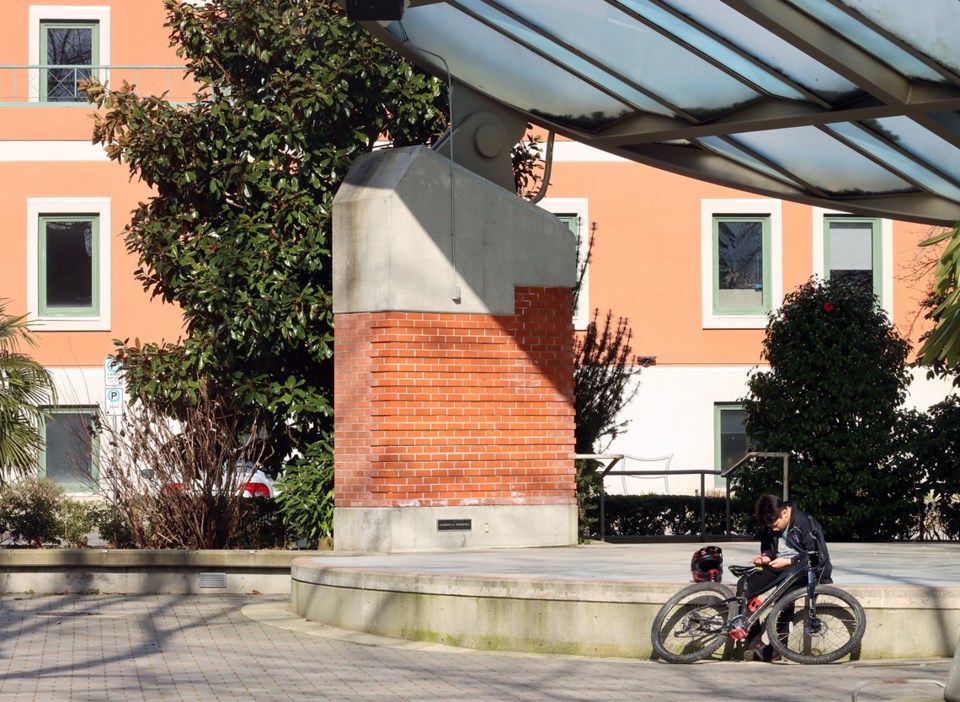Port Coquitlam has updated its commemorative naming policy to reflect diversity and to ensure that those whose names are chosen for a park or facility bring honour to the city.
Terry Fox Library is a good example of this.
Though Fox was born in Winnipeg and moved to Port Coquitlam when he was 10, he was a hometown hero whose Marathon of Hope run to raise money for cancer research showed grit, determination and exemplary character.
Living up to Fox’s status as a Canadian legend would be difficult for anyone whose names might be chosen, but while some Port Coquitlam park names reflect a location – such as Castle Park in the Citadel Heights neighbourhood – many have historical roots representing politicians, community service groups, community leaders and settler families.
Some park names even have intriguing back stories.
For example, Granny Smith Park (2350 Shaughnessy St.) is named for Dorothy Smith, who lived in a small home near where the park is located.
“She was well liked in PoCo and Vancouver, where she worked, and was affectionately called Granny Smith,” reads a description by the PoCo Heritage and Cultural Society.
“On one occasion she slipped though security while Prime Minister Pierre Trudeau was visiting and gave him a commemorative Terry Fox stamp. When security closed in, Trudeau said ‘There’s no problem. This is Granny Smith.’”
PARK NAMES SHOW CITY'S EARLY HISTORY AND LACROSSE HERITAGE
PoCo Heritage provided Tri-City News with a list of 19 parks with historical names.
See if you know who your neighbourhood park was named after and why:
- Aggie Park
- Named for the former site of Aggie Hall, a community gathering place
- Barrett Park
- Named for Sheila Barrett who lived nearby and used to clean up trash in the area
- Blakeburn Park
- Named for Pat Burns and Blake Wilson, and a ranch in the area. The two were business partners; Burns was the creator of Burns Meats, and the two were also involved in a Blakeburn mining venture
- Coutts Park
- Named for long-time residents, the Coutts family
- Davison Park
- Named for George and Douglas Davison, two Port Coquitlam brothers who died in WWII
- Donald Pathway
- Believed to be named after early settler Donald McLean (1856-1930)
- Elks Park
- Named for a service group that helped establish the park
- Fox Park
- Named for Edward (Ned) Fox, pastor of Hope Lutheran Church 1972-1977
- Gates Park
- Named for Mike Gates (1939-2000), former city councillor, and member of the Lacrosse Hall of Fame
- Hope Park and Pool
- Named for Robert Hope, (1900-1966), a former alderman and mayor. Robert Hope Centennial Pool opened in 1967 and later the entire park was renamed for him
- Kilmer Park
- Named for the Kilmer family; John Kilmer was Port Coquitlam’s first engineer after incorporation in 1913. His daughter Jane was the first woman to be elected to Port Coquitlam’s city council in 1923 and served as city alderman off and on from 1928 to 1966. Kilmer Elementary is built on her former property
- Leigh Square
- Named for Roy G. Leigh, 1888-1961, the city’s first assessor and tax collector, city clerk, juvenile court judge, police magistrate, believed to have played a pivotal role in getting Port Coquitlam through a financial crisis without declaring bankruptcy
- Lions Club
- The Port Coquitlam Lions Club donated the land and sponsored the building of a park and playground in 1951
- Marian Kroeker Park
- Born in Holland, Marian met Canadian Henry Kroeker during the liberation of Holland after WWII and later moved to Canada. The Kroekers purchased seven acres of land on Argue Street and Pitt River Road. The government expropriated their land in 1979 to construct the Mary Hill Bypass, which would become the location of the Maryhill Excavation when First Nation’s artifacts were found there. The Kroeker family donated a piece of their original land to the city of Port Coquitlam for a public park to be named for Marian
- McLean Park
- Named for the McLean family, early settlers
- McMitchell Park
- Named for Minnie McMitchell (1902-1982), she was the caretaker of the wading pool next to Aggie Hall. She and her husband moved to Port Coquitlam in 1939
- Nacht Park
- Named for Ronald E. Nacht (1921-2007); a former alderman, he was an original charter member of the Port Coquitlam’s Lions Club and later the president, and was involved in many other groups, including the May Day committee
- Routley Park
- Named for the Routley family, who moved to Port Coquitlam in 1905. Harold Routley was city alderman from 1956-1959. He founded the Port Coquitlam Athletic Association in the early 1960s. He founded the “PoCo Trail blazers” and created the PoCo Trail in the 1970s
- Rowland Park
- Named for Douglas S. Rowland, (1893-1977) known as the “Father of Lacrosse in Port Coquitlam.” He began playing lacrosse in 1909. In 1935, he organized the first Port Coquitlam Lacrosse Association. In 1976, he was inducted into Canadian Lacrosse Hall of Fame for the work he did for lacrosse in Port Coquitlam
- Thompson Park
- Named for Mike Thompson, (1934-2020) a former councillor, in recognition of his contribution to the development of recreation in PoCo. He proposed and established the first community gardens in the city which are still on Mary Hill Road





